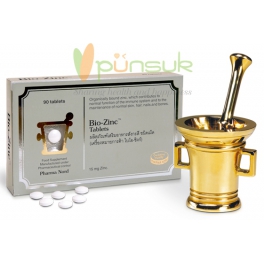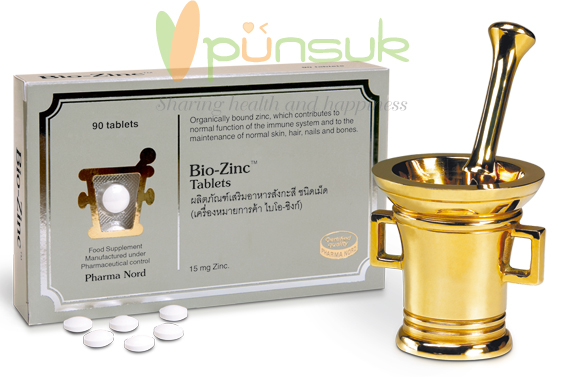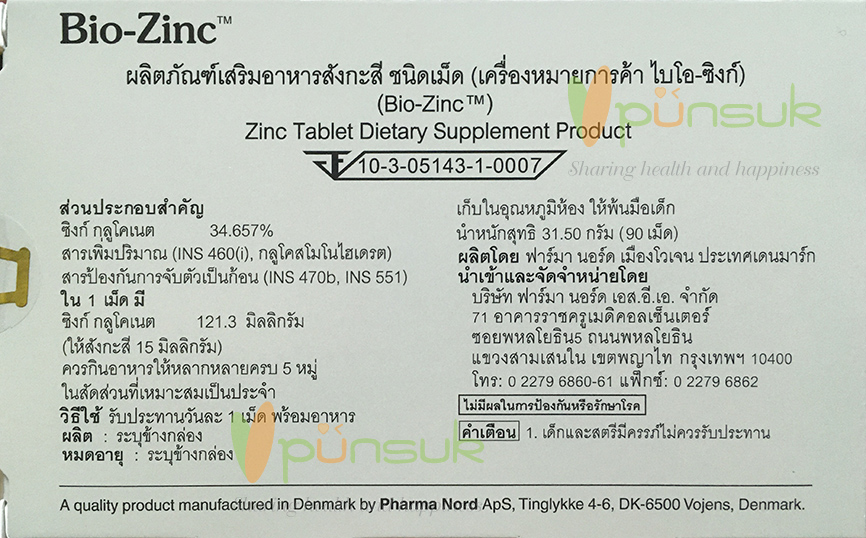Zinc is an essential mineral and a trace element that is primarily found in cells and, to a lesser extent, in cellular fluid throughout the body. For instance, our white and red blood cells contain a substantial amount of zinc. Together with copper, zinc is an important constituent of the antioxidant enzyme superoxide dismutase (SOD).
Zinc has many different functions in the human body and supports about 200 different enzymes, including enzymes that are necessary for metabolizing nutrients and enzymes that are important for translation and expression of genetic coding.
We contain 2-4 g of zinc, which are distributed in all body cells, especially in the muscles, bones and skin. However, we have no definite zinc depot and therefore we need a continuous supply of the mineral. The highest concentrations of zinc in the body are seen in the male prostate gland and in sperm cells.
The need for zinc is greatest during puberty, in pregnant and breastfeeding women, with vegetarians, with elderly people, by heavy drinking, under stress, the use of diuretics and in people who sweat a lot.
Zinc is non-toxic in the recommended dosage range, but high zinc doses (10 to 30 times the RDA) for a longer period can lead to copper deficiency.
Concomitant intake of iron and zinc can affect the body's zinc uptake negatively. A high calcium intake can also reduce the uptake of zinc in the body.
Good zinc sources
Zinc is found in a variety of foods. Good sources of the substance include:
- Oysters
- Meat
- Nuts
- Pumpkin seeds
- Whole grains
- Spices
- Spinach
 ดูรูปขนาดจริง
ดูรูปขนาดจริง 





























